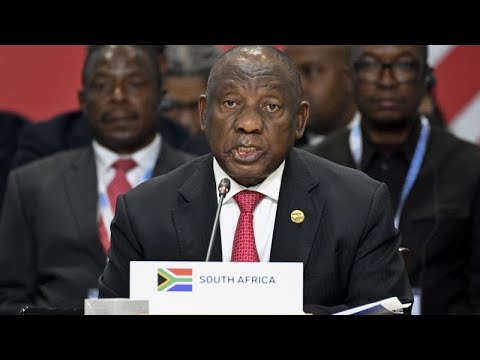Africa
African Leaders at BRICS Call for Urgent Reforms of Global Institutions

During the BRICS summit, African leaders urged for reforms in international institutions to better reflect the interests of developing nations, calling for a fairer global governance system that promotes equality and inclusivity.
At the BRICS summit currently taking place in Russia, African leaders voiced their opinions on Wednesday regarding key issues they perceive as significant on the international stage.
The coalition, originally comprising Brazil, Russia, India, China, and South Africa, has expanded to also include Iran, Egypt, Ethiopia], the United Arab Emirates,[/] and Saudi Arabia.
Turkey, Azerbaijan, and Malaysia have formally applied for membership, with numerous other countries expressing interest in joining too.
Egyptian President Abdel Fattah el-Sisi stated that international developments have revealed the limitations of the current global system, which encompass not only political and security concerns but also economic and developmental challenges.
He stated that “the escalating debt issues and insufficient funding” are among the challenges hindering rapid economic growth in developing countries.
The Egyptian President stated that Cairo places great importance on actions to highlight its contributions to fostering development in these countries for the international community.
South African President Cyril Ramaphosa advocated for reforming the World Trade Organisation and adjusting trade rules to facilitate industrialization.
He emphasized the need to strengthen cooperation among BRICs members by initiating joint development programs in exports, industrial collaboration, and technology exchange.
Ramaphosa also voiced his concern about the ongoing crisis in Gaza and the Middle East, calling for an immediate ceasefire and advocating for the recognition of Palestinian self-determination.
Ethiopian Prime Minister Abiy Ahmed proposed a reform of the United Nations Security Council, another international organization.
He stated, “By working together, we can advocate for reforms that address the concerns of developing nations and ensure their voices are heard on the global stage.”
“This is about more than just representation; it’s focused on justice, equity, and enabling all nations to play a role in global governance.”
The three-day summit represents the largest assembly of world leaders in Russia in several decades and occurs as the West seeks to isolate Moscow due to its activities in Ukraine.
